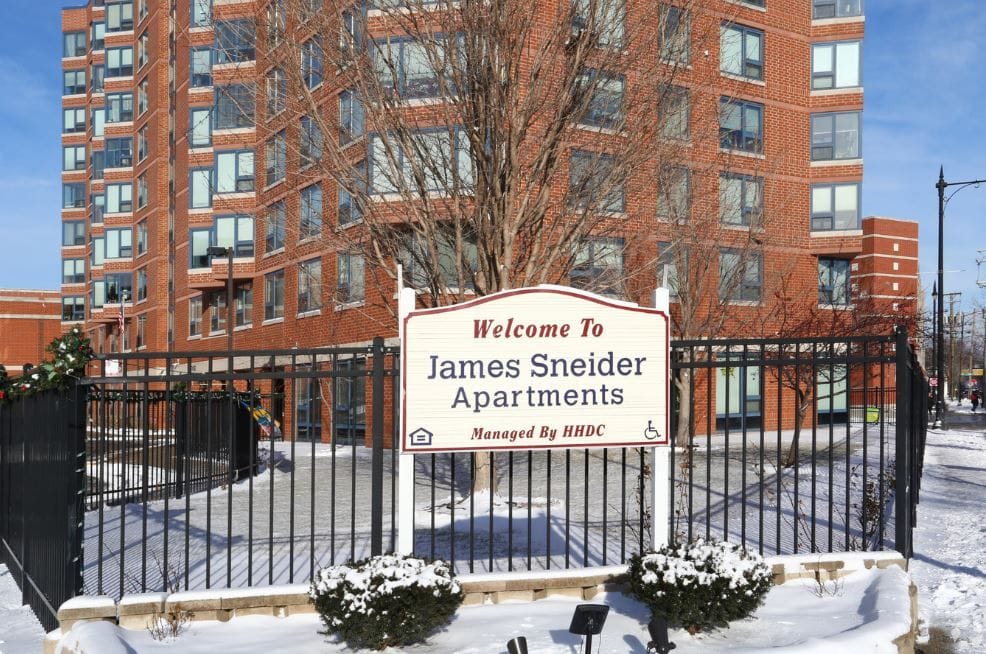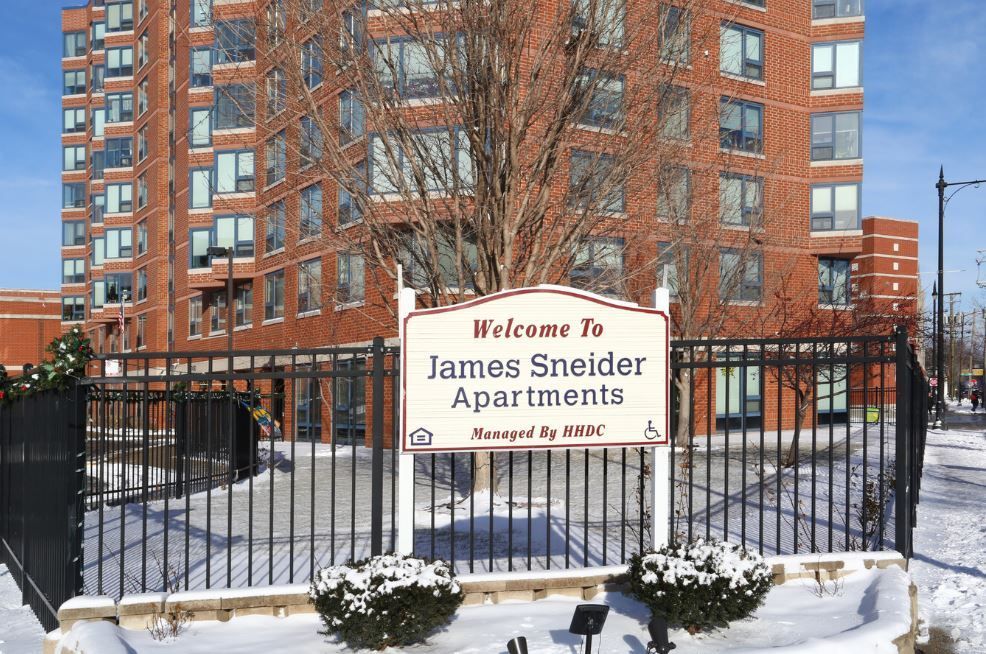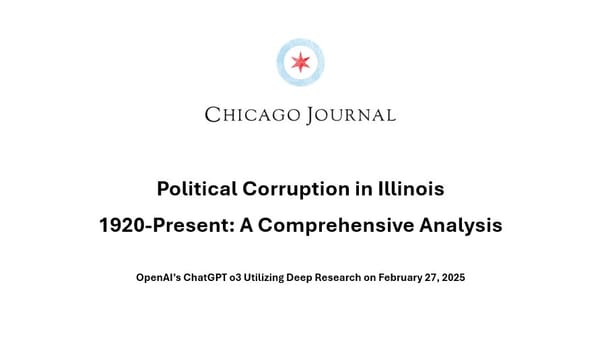Owner of senior facility where 3 died during heat wave fined
The owner of a senior housing facility on Chicago's North Side where three women earlier this year died amid a brief May heat wave that caused temperatures in the building to soar into the low 90s has been fined $1,500 by the city's buildings department.


CHICAGO (AP) — The owner of a senior housing facility on Chicago's North Side where three women earlier this year died amid a brief May heat wave that caused temperatures in the building to soar into the low 90s has been fined $1,500 by the city's buildings department.
Citing city records, the Chicago Sun-Times reported that the fine was levied after an inspection by the buildings department found 11 code violations — two of which were the result of a rooftop air conditioning “chiller" that did not appear to be suitable for use on the exterior of the building.[1]
Records show, according to the newspaper, that the department determined that issues noted in the city's first inspection had been addressed and that a second inspection determined there were “no dangerous and hazardous conditions.”
By that time, the Hispanic Housing Development Corporation — a non-profit organization that owns and manages the James Sneider Apartment — had, among other things, provided individual air conditioning units to every tenant.
Mike Puccinelli, a buildings department spokesman, said the fine was levied before city officials had access to autopsy records that showed the deaths of the three women whose bodies were discovered May 14 were linked to the heat. He said the fine was based completely on the violations found during the inspection and that the building department would only levy fines based on such violations of the city's building code.
In an email to the Associated Press, Puccinelli explained that autopsy records would not be relevant to the department's inspection of buildings and whether or not it complies with the Chicago Building Code.
“Any type of medical record could be relevant to a private civil lawsuit by the injured party or their agent against the property owner,” he said.
On Aug. 11, a week after the fine was levied, the Cook County Medical Examiner's office concluded that the primary cause of death for Janice Reed, 68, Gwendolyn Osborne, 72, and Delores McNeely, 76, was “environmental heat exposure due to hot residential building during heat-related weather event,” according to spokeswoman Brittany Hill.
The Sun-Times reported that it asked the Chicago Police Department about the incident and a department spokesperson would only say that the investigation into the deaths of the women “was concluded as non-criminal.”
Hipolito “Paul” Roldan, the nonprofit’s president and chief executive, said he did not know about the autopsy results until the Sun-Times asked about them and he declined to comment further, citing lawsuits that filed by the families of the women.
The deaths of the women prompted the City Council to pass new cooling requirements for larger residential buildings — including a requirement that buildings must run their air conditioning systems any time the heat index climbs above 80 degrees.[2]

The Chicago Journal needs your support.
At just $20/year, your subscription not only helps us grow, it helps maintain our commitment to independent publishing.
If you're already a subscriber and you'd like to send a tip to continue to support the Chicago Journal, which we would greatly appreciate, you can do so at the following link:
Send a tip to the Chicago Journal

Notes & References
Schuba, Tom. “Clouted Owner of Overheated Senior Building Where 3 Residents Died in May Fined $1,500.” Times. Chicago Sun-Times, October 27, 2022. https://chicago.suntimes.com/news/2022/10/27/23412155/rogers-park-senior-james-sneider-home-hispanic-housing-development-corporation-gwendolyn-osborne. ↩︎
Press, Associated. “May Heat Wave Deaths Prompt New Cooling Rules in Chicago.” Chicago Journal. Chicago Journal, June 23, 2022. https://www.chicagojournal.com/may-heat-wave-deaths-prompt-new-cooling-rules-in-chicago/. ↩︎





